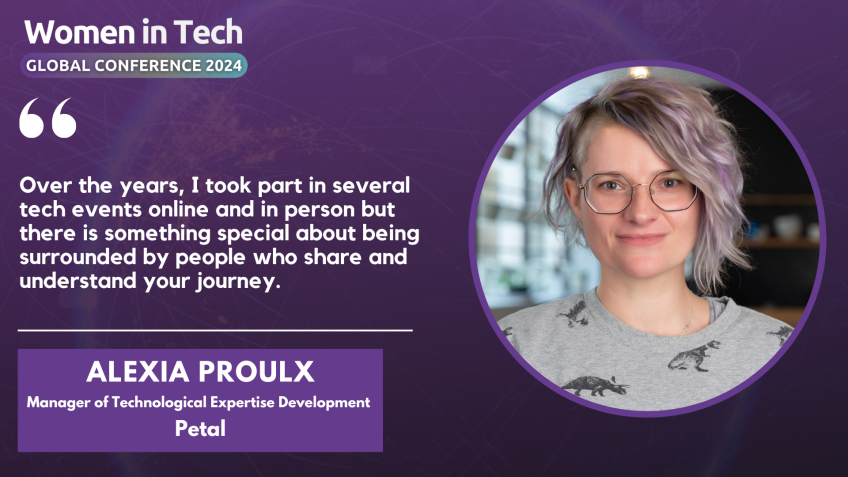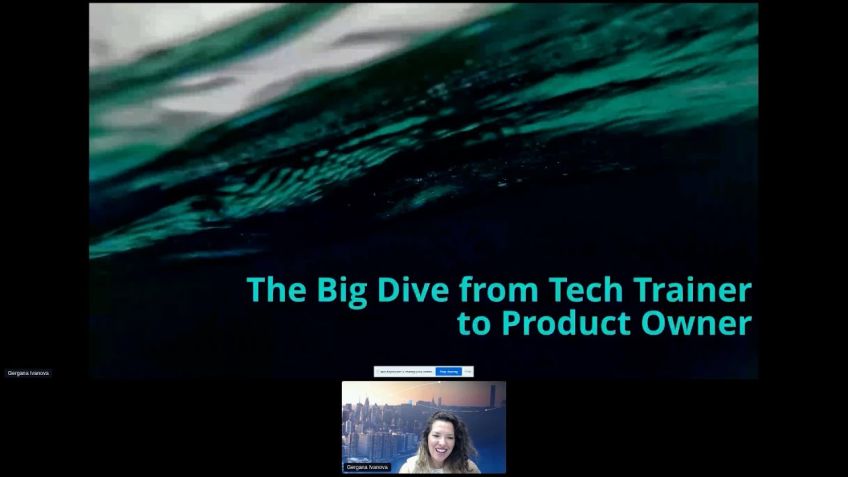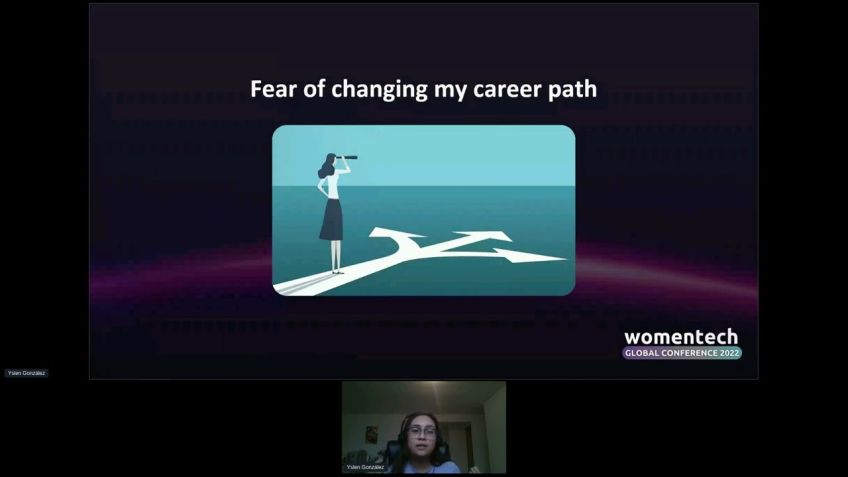Is switching between industries a risky career strategy?
Reviews
Why Switching Careers May or May Not be Risky – The Detailed Perspective
The journey of switching careers is a path that requires courage and determination. But is it completely fraught with risk? That's not always the case, it depends on many factors. In this post, I will take you through my career path spanning over thirty years and share some insights into the benefits and risks of making a major career move.
Developing an Early Career – The Value of a Strong Leader
As a seasoned professional with 30 years of experience, I would like to emphasize the importance of finding a strong leader to guide you through your initial career period. Young professionals, stand to gain massively by working alongside experienced leaders who are passionate about nurturing their teams.
Remember, your early career isn't just about growing your personal skills, it's also about absorbing as much as you can from the people around you. Guided by remarkable professionals, my first mentors nurtured me, and I learned management not just from books but by following their examples.
The Transition and Discovering New Passions
At 25, I found my passion for marketing. Finding the profession you love isn't always easy, and for me, it became a journey of discovering my various interests. It may sound clichéd, but I think I was born for my profession.
- At 28, I found my footing as a CEO and founder.
- At 32, I became a tutor for a diploma program at the Chartered Institute of Marketing.
- At 35, I entered the corporate world through a marketing research role in a legendary vodka brand, where I later returned as a Global Chief Marketing Officer.
Embracing New Opportunities and Challenges
My career path has seen me switch from liquor companies to retail banks, and finally to software development. Each major turn brought new challenges but also new opportunities. I believe in making impactful changes, and for me, switching industries became a method of keeping things interesting and pushing my professional boundaries.
Taking the Leap into the Unknown
While I enjoyed my time in traditional industries, I found myself drawn to emerging fields, such as fintech and e-sports. In fact, at 43, I joined a 150-person e-sports team as the oldest member, and while it was intimidating, it was also extremely rewarding. My curiosity and the desire to learn more led me to embrace this entirely new industry.
Bridge between Personal Traits and Professional Success
In my experience, personal traits can heavily shape your professional journey. Being an independent person who hates to be bored, I found myself continually seeking new industries and experiences. Further, having a strong character and a flexible, agile mindset helped me to adapt quickly to new circumstances, taking on responsibilities with aplomb.
Conclusion
Even successful professionals have their moments of self-doubt and fear. But the desire to overcome boundaries and the curiosity for the unknown often acts as a springboard to new opportunities. I have certainly had times when I've questioned my next move, but by remaining curious and relying on my support system, I've continued to move forward. Challenges can be daunting, but the sweet taste of accomplishments makes it all worth it.
Remember, a career switch isn't about risk — it's about opportunity. You don't always have to be a daredevil to take the leap, sometimes all it takes is a little bit of curiosity, a pinch of courage, and a whole lot of perseverance.
Video Transcription
Is switching risky. Well, I guess there's no definite answer, uh, to that question. Uh, of course, it is, is it, uh, is it relevant for everyone? I guess not?That really depends, uh, on many, uh, things and, you know, next 20 year ne next 20 minutes I will spend, uh, you know, giving you some details of my career path and also some ideas why you may or may not, uh, pursue, uh a career like mine. So I'll, um, um, I can only speak for myself. Uh, uh I am, uh, I, uh, I work for more than 30 years but I would say that uh, 27 years, uh, actually my professional career. So all that, you know, all that I'm sharing is, is actually based on a quite long, uh, uh period of experience, right? So we can, uh, definitely, uh, draw some conclusions. Uh So, uh, before I give some numbers, names and titles, uh I'll, I'll, I'll say a very important, uh, or I'll send a very important message to younger, young, uh, people and uh, young girls who are about or at the beginning of building their careers. It is very important to find a strong leader uh and follow a strong leader in early ages of your career to work alongside with, uh with uh with, with a person who, who uh who is experienced, who is uh eager to nurture um you know, his team or her team uh uh to be able to absorb as uh as much as possible.
That is in my opinion, very important at the early uh years of o of the, of, of your career. Actually, I had, I was lucky enough. Well, you know, you hear that very often. I was lucky enough. Yes. Um uh I'm in the same uh in the same group of people uh being privileged to say I'm lucky enough. So I was lucky enough to start building my career with uh uh absolutely uh um inspiring and uh and uh strong uh group of uh professionals. Um These were mostly uh Americans who came to Ukraine to, to, to, to, to help um Ukrainian banks uh transform to international uh international accounting standards. These were all um experienced uh uh people with uh actually at the end of their career. So they were very open and very uh generous uh uh in sharing their experience and nurturing um um their reports. That's how I got my first mentors. Uh That's how I actually started to learn management, not only in books, but actually by uh following somebody by example. So I guess that's, that's 11 important thing that I wanted to start with. So now, uh, I'll switch, uh, to numbers. Um, I, uh, I came to marketing when I was, uh, 25. That, that's not my first, uh, profession. Uh, I picked it, uh, you know, after, uh, some time I decided that it's gonna be my next profession. And I was right. I, I do this profession. I, um, I think I was, uh, I was born for this profession.
So uh I became CEO and founder when I was uh 28. Mm And at uh 2032 I actually became already a tutor for the diploma program at the Chartered Institute of Marketing. Uh and the program was marketing research and information. The company that uh I co-founded uh was a consumer research company. And by that time, you know, four years later when I started to teach, um I already had uh well, my team uh has already uh already accomplished uh 100 plus researches. So I had, I had huge experience on consumer research for qualitative and quantitative studies that I, I was willing to share with uh with students. I think all these uh teaching engagement, I'll, I'll come to that uh a little bit later again that engaging into teaching and speaking uh speaking opportunities is very important because it pushes your boundaries that uh that you learn something new. Uh Even if you learn this about yourself, when you think uh you know, when you prepare to lectures, when you prepare to, to uh when you prepare your speech, uh you uh you learn something new, you learn something new uh about yourself. Uh So I would uh encourage uh uh I would encourage you uh to also never miss an opportunity for teaching and uh speaking uh uh speaking engagements. So I um I was happy and for many years, I was a tutor for the British Chartered Institute of Marketing.
And I think I learned as much as my student did during those uh during those years. Not only because I was preparing for the lectures, I actually learned from their experience. They were sharing uh with me the um you know, specific cases in their company, any specific cases in the industries. And that helped me learn as uh learn more and develop as well. So I became a more uh I became more professional through learning uh from my students. Um So I guess this is also an important part of uh of becoming a teacher that you learn when you prepare for your lectures and you learn from your students, you learn from helping them. And then you can also um apply this uh to uh in your work, to developing your reports, to developing your team. Um My corporate career started at 35 when I became marketing research and uh strategy director for the legendary uh Ukrainian Vodka brand. Um But at 38 I switched to, um I switched to banking. I joined one of the biggest um retail banks at that time in Ukraine. You would say why? Because I got so interested. They had, they had very challenging and interesting tasks. They had all possible uh channels of, of uh of communication. Uh We were even sending direct mail to our clients.
So I actually got lured by an opportunity to, to, to, to, to, you know, to lead uh big projects to lead uh to um uh work with uh actually huge marketing budgets and, you know, make a change. I always, I'm always interested to make a change to make an impact to, to see uh the results of uh uh of my actions. Um later on when uh I'll, I'll, I'll, I'll get back to that as well. Um When I uh talk about the factors uh that, that uh you know, the specific factors of the Ukrainian economy that actually lead to not only my but other people to switch industries. So at 40 at 41 I returned to uh to the same um uh vodka company, but already in a different role in the role of global uh CEO Global Chief Marketing uh Officer to develop more than 22 markets. Well, you know, it was quite interesting and I would say uh a bit nostalgic for me to go back to, to, to, to that company. But uh quite soon I understood that I'm not, I, I don't find uh promoting a heavy liquor brand uh fund anymore. I was, uh, I was feeling that I, I really wanted to, you know, to switch to something else. I also kind of uh started losing interest to traditional industries and started uh looking at uh new economies like uh um like uh fintech, like uh new ways of entertainment.
And uh um when I worked uh in the Mira, which is the, this uh vodka brand company, we uh we did a lot of sponsorships. And during that time, we had a very interesting project on uh sponsoring uh E sports tournament, which was very unusual, especially unusual for Vodka. And I would probably not do it uh again because, you know, even e sports is growing and you can, you can see uh older people playing. I still believe it's very young. And I, and I, I do believe that that he liquor brand has nothing to do there. But at that time, uh it was fun and uh we developed a whole set of very light cocktails for the audience. We gave them uh you know, um uh character, character names. Uh We developed special designs, et cetera. We definitely controlled who, who, who consumed them. But I also because I'm such a number person and I'm, I'm with uh with uh extensive research background, I definitely uh plunged into multiple res uh researches and I saw the unusual growth dynamics of that industry and I decided to join it. So I joined these sports when I was 43 and I was the oldest person in the uh 150 people team. And, uh don't you think I was intimidated? Yeah, I was definitely, but at the same time it was so interesting.
I mean, it was a whole new world, uh, that, that, that I discovered. So I spent three years uh in uh in e-sports and it was, uh uh it was uh so much fun. I actually build a large international network from scratch. I started, uh I started teaching marketing for NBA e-sports students in Barcelona. So I really enjoyed those years in e-sports and, uh you know, still watch tournaments and still watch championships. Um And last year, uh I decided to, to join uh growing software development industry and became a chief marketing and experience officer for Innovex, a rapidly growing software development company that has offices in the US Europe and Australia. And we have, we have 100 plus uh clients globally.
So I actually switched from B to C to B to B and even B to E which is almost like B to C but trickier. Am I enjoying it? Yes. Is it stressful at times? Of course, it is. So some of the uh advice that I would give you, uh you know, if you decide to, to, to follow a career, uh like, uh like I do, um first of all, um you know, look at your personal traits. I hate to be bored. Uh So I need to, to be inspired. I need to come, I need to love my work. I need to be interested in what I do. So I guess that is an important factor why I'm actually switching uh between uh uh between industries and uh companies. So I think that uh some of the roots are also in my upbringing uh because I was raised as a very independent and um uh and responsible person. Well, these were the obstacles of my childhood. At the same time, I learned how to take care of my younger sister, which helped me to learn how to take care of my teams. Cause uh I uh I, I uh I am, you know, um I grew as a team leader and uh I, I have servant sha uh leadership style that helps me to, to lead my teams in good and bad times.
Another factor uh uh is female nature I think, which is very agile. So uh I have a combination of strong character which is, you know, sometimes people say it's uh it's masculine, but I would just say it's, it's strong and at the same time, I'm very agile as most of, of women are. Again, it's, it's, it's a female nature. So that helps me to uh you know, to adapt quickly to new uh circumstances. Uh I am in uh also very important factor. Be selfish, understand your needs, including your professional needs. Don't you, don't you think I felt guilty when I left my two month old son at home and, and, uh, went back to, uh, went back to work. Yes, I did. But I had a very important project that I needed to, uh, uh, to do that. I needed to participate. I was the, the lead person in that project. Uh, So, yes, I did, I feel guilty. But at the same time, I felt that it, it was important for me. So, you know, uh I, my son is now 11. Um uh We have a great time with him. I often take him to work. I, I explain him what I do. He knows about every company that I work with. Uh uh he knows a lot of colleagues in my companies. He knows people in my teams.
So he's very engaged in my, in, in the professional uh uh aspect of my life. Well, also know your natural aptitude. It is very important because when, when you become a leader, you have a privilege to build a team. So you can compensate your weak side and uh exploit your strong sides when you construct a team. So, so to become successful as a leader, you should actually be uh be capable of building a strong team, which I guess uh I'm kind of capable of. Um um what else? Um Well, and the last thing I want to emphasize, I am always, I am often intimidated. Don't think that people who take risk and uh make this great turns in their lives are not intimidated. Yes, we are. I uh uh I'm not fearless at all. It's just that I'm so curious that it helps me to move on. It helps me to overcome my fears and doubts and continue, continue on every time, every time uh that, you know, I make a new move. I lean on my family and my husband and it helps me do. I like challenges. Well, not really. I like accomplishments.





No comments so far – be the first to share your thoughts!